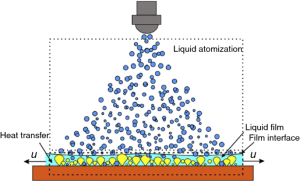
LAKEWOOD, CO - NOVEMBER 14: RN Corinna Montesano checking Bernard Trujillo's heart beat during his 4 hour session at DaVita Lakewood Dialysis Center November 14, 2018 Lakewood, Colorado. (Photo by Joe Amon/The Denver Post via Getty Images)
Preventive care plays a pivotal role in maintaining overall health and well-being. Intricate dynamics of preventive care, it becomes evident that medical services are essential components of this proactive approach to health. The multifaceted contributions of DocGo medical services in preventive care, emphasize the collaborative efforts needed to foster a healthier society.
Understanding Preventive Care
Definition and Goals
Preventive care involves measures taken to prevent diseases or detect them at an early stage when treatment is more effective. The primary goals include reducing the prevalence of diseases and promoting a healthier lifestyle.
Types of Preventive Care
Preventive care comes in various forms, ranging from routine check-ups and screenings to lifestyle interventions and vaccinations. Each type serves a specific purpose in maintaining and enhancing an individual’s health.

The Role of Medical Services in Preventive Care
Screening and Early Detection
One of the fundamental contributions of DocGo medical services to preventive care is the implementation of regular screenings. These screenings aim to detect potential health issues before they escalate, allowing for timely interventions and improved outcomes.
Vaccinations and Immunizations
Medical professionals play a crucial role in administering vaccinations and immunizations. These preventive measures not only protect individuals from serious illnesses but also contribute to the broader community’s immunity against contagious diseases.
Lifestyle Counseling
Medical services extend beyond traditional treatments to include lifestyle counseling. Healthcare professionals provide guidance on nutrition, exercise, and stress management, empowering individuals to make informed choices for a healthier life.
Promoting Healthy Behaviors
Encouraging Exercise and Nutrition
Medical services actively promote healthy behaviors by advocating for regular exercise and proper nutrition. These interventions aim to prevent obesity, cardiovascular diseases, and other lifestyle-related conditions.
Smoking Cessation Programs
Addressing tobacco use is a critical aspect of preventive care. Medical professionals engage individuals in smoking cessation programs, supporting them in overcoming addiction and reducing the risk of associated health issues.






